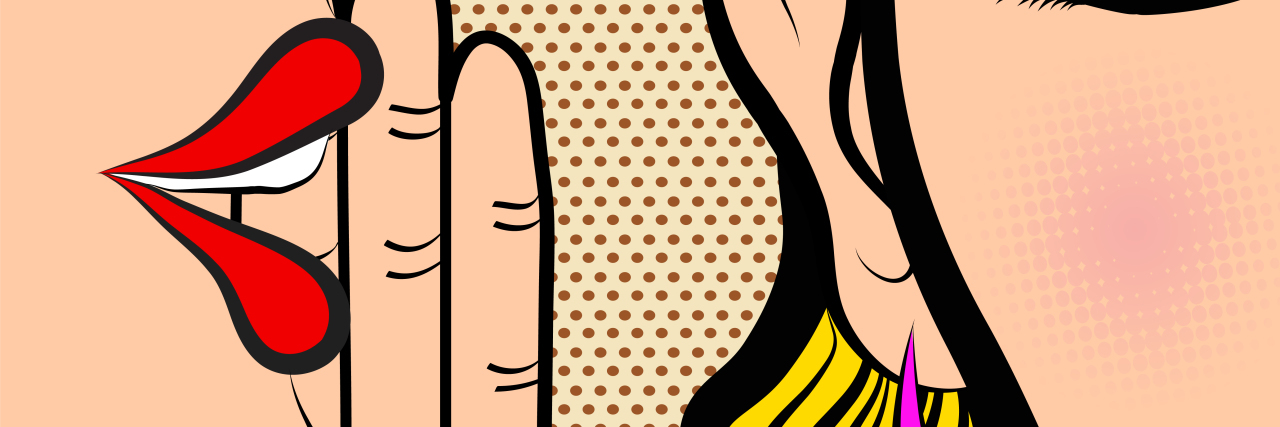Fairly recently, I had this weird experience where a person with a chronic illness threw the “but you look fine!” line on me. I am pretty certain I didn’t respond. In fact, I don’t really recall what happened afterwards because I was in shock. Isn’t it chronic illness code that we don’t say that to each other? Hadn’t this person been informed? Did they miss the training?
I was deconstructing this experience by recounting the event to my therapist when I realized two things:
1) I have a mental list of everyone who’s ever said that to me.
2) I am a monster.
That simple string of words produces such rage and hurt inside of me, so I heavily judge people who say that to me. And I know I see everything they say to me afterwards through that lens of judgment.
However, if therapy has taught me anything, it’s to dig deeper. Saying all this out loud in my therapist’s office made me realize that the magnitude of these words was not confined to those one-time experiences. There was more going on beneath the surface.
Why was I holding onto those interactions?
Why did I remember so vividly where someone said that to me?
Why did I care so much when people tell me I look fine when I feel the complete opposite?
“What I’m thinking,” my therapist mused, “is that when someone tells you ‘you look fine,’ you hear it as ‘you’re not really sick’ or ‘I don’t believe you.’”
Bingo.
I know that’s not what people mean when they tell me that. I know they’re just trying to give me a compliment or maybe even lighten the mood. I know there is no malice in those comments, but it’s hard for me not to see it as such. I have a chip on my shoulder. But why?
Maybe it’s because in the beginning the doctors couldn’t find anything wrong with me, so I started questioning myself. Or maybe it’s because people wouldn’t take my fatigue or pain seriously. Or maybe it’s because people close to me didn’t believe that something bigger was going on when I started becoming really, truly, chronically ill.
Plus, giving me a compliment about my looks has never high up on my list of things I need or even, quite honestly, care about. When someone tells me I look good and I feel fine – great, thanks. But when they tell me I look good and feel utterly and completely horrible inside, all is downhill from there. I cannot tell you how invalidating that feels. It’s almost like they’re choosing to turn a blind eye to all my physical and emotional pain by giving me a little fluff of nonsense words void of acknowledgement.
And I know that if I never say anything in the moment, my resentment for the comment thrower will just build. It’s not my fault their comments are not well received because I know good intentions are worthless if the product is trash.
However, it is my responsibility to educate them and tell them how I perceive that comment, so they are aware.
I mean, how would I feel if someone else kept holding a grudge against me and judging me for something I said months or even years ago, but they never told me it offended them? So, yes, I know I need to try to stand up for myself in the future.
Now as for the past, I need to let it go. I need to let those comments slide and give those people clean slates. I need to not always see everything they do or say through that lens of past judgment. And if I do find myself in a situation where I feel like they don’t believe my illness or the accommodations I need because I’m still holding onto that comment long ago, I know I need to take a step back. I need to assess the situation to see if maybe I’m seeing what they’re saying through that lens of judgment or maybe what they’re telling me is entirely unrelated.
And now that I’m working on my part, I need others to work on theirs. While I am only one chronically ill person, I know I am not alone in my dislike for this phrase.
So the next time your chronically ill pal says something that makes you want to utter those words, think twice. Then proceed.
This story originally appeared on Melanie Leong

